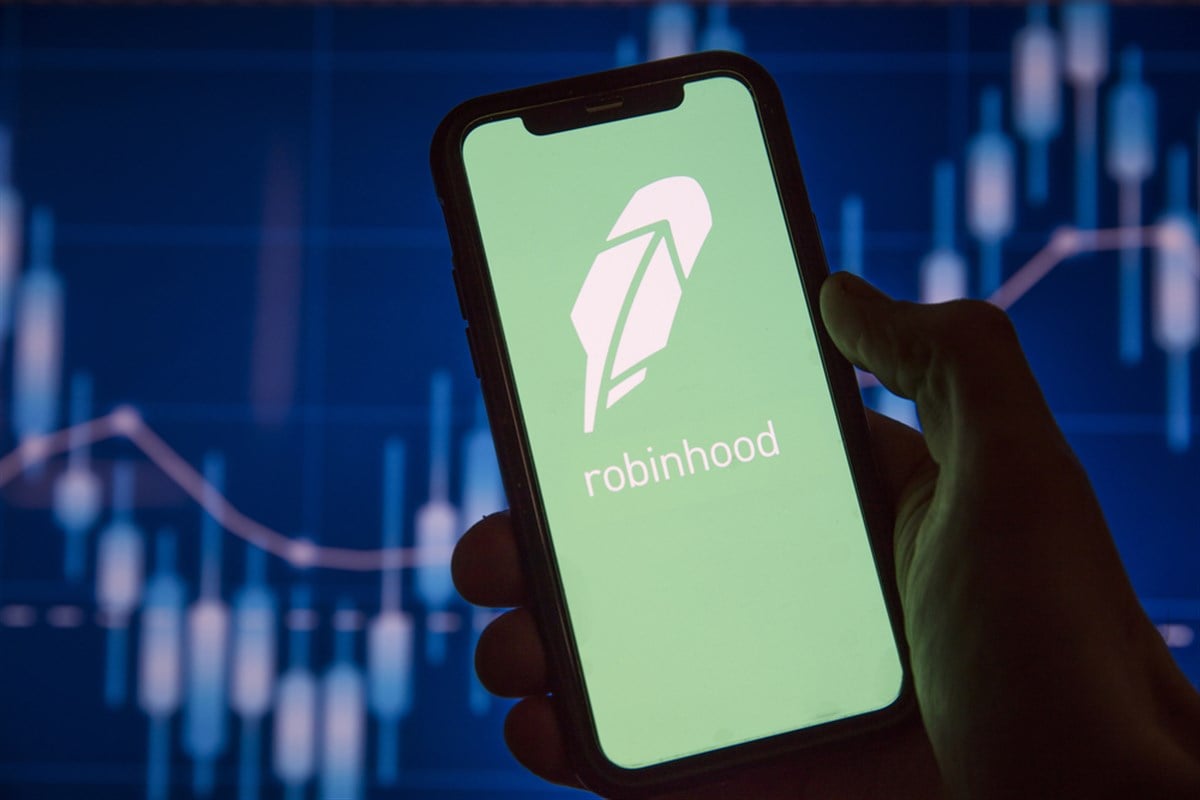
Shares of Robinhood Markets Inc. (NASDAQ: HOOD) have already had a massive run so far into 2024. Still, the new up-and-comer asset manager must look for ways to keep delivering further growth for its investors and customers. Investors should watch out for how this stock creates a brand moat before it becomes too apparent to buy at a low price.
Most market participants think Robinhood is simply a platform for retail investors who like to take risks and trade options without prior knowledge of financial markets, and they would be suitable for most of Robinhood’s lifespan. However, Robinhood has transformed into a completely different hub of different financial services and solutions, drawing it away from its previously perceived audience and into a higher quality client.
Ultimately, Robinhood is starting to compete with other retail brokerage and financial services houses like The Charles Schwab Co. (NYSE: SCHW). After rallying by as much as 142% in the past 12 months, here is how Robinhood management is looking to deliver another triple-digit rally for the next 12 months.
From Losses to Unexpected Profits: Robinhood Stock’s Sudden Turnaround
Shareholders had a new reason to celebrate when the latest quarterly earnings results were released. In the first quarter of 2023, Robinhood lost $511 on $441 million of net revenues. Fast-forward to the first quarter of 2024, and the company reports a net income of $157 million on $618 million in revenue.
Each business has its own set of key performance indicators (KPIs), or so-called ‘drivers,’ that make the underlying financials – ideally – expand. In the case of Robinhood, the platform heavily relies on its user count growth to drive further monetization.
When it comes to funded customers, Robinhood’s investor presentation shows that funded customers grew to 23.9 million, or an annual jump of over 810,000. Secondarily, just like any other commercial bank within the financial sector, assets under custody are another way for these businesses to monetize every account they open.
Robinhood’s assets under custody (AUC) grew by 65% over the past year, reaching $130 billion in the first quarter of 2024. Compared to Schwab’s 32.9 million active accounts, Robinhood is underway to get the scale of quantity. However, quality still has a long way to go.
Schwab’s AUC reached roughly $33.7 billion, which excludes the approximate $8.7 trillion in assets under management (a completely different metric). So, Robinhood’s non-discretionary assets are more significant than Schwab’s, but that’s not where the real money is made.
Unlocking Value: Robinhood Stock Targets the Financial Services Goldmine
Schwab’s secret, which is the same in most banks within the Financial Select Sector SPDR Fund (NYSEARCA: XLF), is the discretionary assets under management number. Schwab’s $8.7 trillion in this category allows it to generate billions in income; how?
These assets are centered around clients, giving the platform total control of their assets, including retirement accounts. Robinhood’s retirement accounts reached 650,000 in the past quarter, up from only 220,000 a year prior.
Actual AUC in retirement jumped from $300 million in the first quarter of 2023 to $4.2 billion in 2024. While Robinhood still has a long way to go to break into Schwab territory, this growth rate is nothing to scoff at.
Now that the platform allows customers in the United Kingdom to access Robinhood’s services, investors have a new reason to expect the stock to deliver double-digit rallies on international expansion and rising discretionary (retirement) assets.
Wall Street's Predictions for Robinhood Stock in 2024
After these recent developments enabled Robinhood to push out a 40% increase in revenue, driven in part by a record high of 1.7 million gold subscribers, Wall Street analysts couldn’t help but send out their opinions on Robinhood stock’s outlook in 2024.
Those at JMP Securities saw it fit to slap a $30 a share price target on Robinhood stock, daring it to rally by as much as 30.4% from where it sits today. More than that, these same analysts expect to see 17% earnings per share (EPS) growth in the next 12 months.
However, both outlooks seem to be on the highly conservative end of the spectrum, considering that Robinhood delivered double-digit growth across every KPI it carries.
The Vanguard Group, Robinhood stock’s largest shareholder, boosted its position by 1.8% as of May 2024 to bring its net investment to $1.15 billion. This asset manager wouldn’t look to risk its client’s capital on a stock if it didn’t expect to see at least a market-beating return.
And after Robinhood saw a record deposit rate of $11.2 billion this quarter, Vanguard and other Robinhood shareholders may be exposed to the market-beating performance they are looking for.




